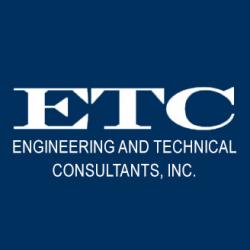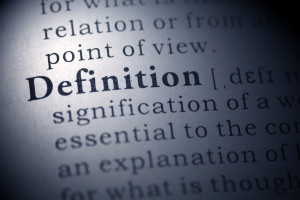Ethical Standards of Professional Engineers

 In matters dealing with public and safety, it is important to maintain a high level of trust in officials responsible for dealing with these matters. Professional Engineers are held to the same high ethical standards. The National Society of Professional Engineers states in their Code of Ethics for Engineers that “Engineers, in fulfillment of their professional duties, shall:
In matters dealing with public and safety, it is important to maintain a high level of trust in officials responsible for dealing with these matters. Professional Engineers are held to the same high ethical standards. The National Society of Professional Engineers states in their Code of Ethics for Engineers that “Engineers, in fulfillment of their professional duties, shall:
- Hold paramount the safety, health, and welfare of the public.
- Perform services only in areas of their competence.
- Issue public statements only in an objective and truthful manner.
- Act for each employer or client as faithful agents or trustees.
- Avoid deceptive acts.
- Conduct themselves honorably, responsibly, ethically, and lawfully so as to enhance the honor, reputation, and usefulness of the profession.”
Of course, traits such as honesty and trustfulness are to be expected of professional individual, but due to the risks associated with poor engineering, Professional Engineers must be held to a higher level of accountability. For example, an engineer specializing in wood-framed residential construction should not be stamping design documents for a hydroelectric dam! Additionally, Professional Engineers must also dedicate a portion of their professional development hours to ethics training or risk losing their license entirely. Overall, these high ethical standards ensure that a Professional Engineer will design, build, and maintain structures that can safely service the public for years to come.

 When most property owners think about ventilation upgrades, they often consider installing new windows and doors or replacing the existing HVAC equipment. However, they often forget to consider one of the most important locations within their building: the crawlspace. Improper ventilation can allow for humid air to become stagnant within the crawlspace, spurring microbial growth and accelerating the deterioration of both wood and concrete structural elements. Given the difficulty accessing the crawlspace, as well as the typical space restrictions, crawlspace structural repairs can be quite costly and lengthy, but proper ventilation upgrades can help curtail these repairs.
When most property owners think about ventilation upgrades, they often consider installing new windows and doors or replacing the existing HVAC equipment. However, they often forget to consider one of the most important locations within their building: the crawlspace. Improper ventilation can allow for humid air to become stagnant within the crawlspace, spurring microbial growth and accelerating the deterioration of both wood and concrete structural elements. Given the difficulty accessing the crawlspace, as well as the typical space restrictions, crawlspace structural repairs can be quite costly and lengthy, but proper ventilation upgrades can help curtail these repairs.



 Does your building have lightning rods? The summer of 2020 brought with it some incredible lightning storms. Without a lightning protection system, buildings may be at risk of lightning-related damage, including electrical fires and physical damage to the structure. For example, take a look at the lightning damage to these rooftop parapet walls on a local high-rise building. Bits of concrete tumbled down to ground level, and the embedded steel even featured black char marks. Fortunately, the damage was minimal, quickly repaired, and nobody was hurt during the storm!
Does your building have lightning rods? The summer of 2020 brought with it some incredible lightning storms. Without a lightning protection system, buildings may be at risk of lightning-related damage, including electrical fires and physical damage to the structure. For example, take a look at the lightning damage to these rooftop parapet walls on a local high-rise building. Bits of concrete tumbled down to ground level, and the embedded steel even featured black char marks. Fortunately, the damage was minimal, quickly repaired, and nobody was hurt during the storm! Although the cost for installing lightning rods is known to be high, protection against lightning-related damage can save buildings and save lives. Check out this Lightning Protection Institute website for an overview of lightning protection standards, technology, and design:
Although the cost for installing lightning rods is known to be high, protection against lightning-related damage can save buildings and save lives. Check out this Lightning Protection Institute website for an overview of lightning protection standards, technology, and design: 


 Have you ever seen someone tapping a concrete wall with a hammer? Or dragging a chain along a concrete floor? These are a couple of the conventional methods for evaluating concrete- that is, identifying and locating unsound or “loose” concrete. These methods are known to be noisy and typically require close-up, physical access to the concrete surfaces. You might wonder is this the only efficient way to evaluate concrete?
Have you ever seen someone tapping a concrete wall with a hammer? Or dragging a chain along a concrete floor? These are a couple of the conventional methods for evaluating concrete- that is, identifying and locating unsound or “loose” concrete. These methods are known to be noisy and typically require close-up, physical access to the concrete surfaces. You might wonder is this the only efficient way to evaluate concrete?

 Two recurring complaints of residents in multi-family buildings are related to
Two recurring complaints of residents in multi-family buildings are related to 



 As Hurricane Dorian bears down on the Atlantic Coast, many are preparing for its arrival. It seems like common sense to be sure that all exterior windows and doors to your house/building are closed. In fact, studies have shown that open windows/doors increase the wind pressure acting on a building roof, beside letting in the rain to damage the building interior. This led to the development of so-called Hurricane Windows. These windows can resist the force of a flying 2×4 and other debris so that the wind and rain do not enter the house.
As Hurricane Dorian bears down on the Atlantic Coast, many are preparing for its arrival. It seems like common sense to be sure that all exterior windows and doors to your house/building are closed. In fact, studies have shown that open windows/doors increase the wind pressure acting on a building roof, beside letting in the rain to damage the building interior. This led to the development of so-called Hurricane Windows. These windows can resist the force of a flying 2×4 and other debris so that the wind and rain do not enter the house. Words can have a number of meanings and can even change meanings with time. This is especially true of terms specific to a technology or industry. Following are definitions of a few roofing and paving terms that people outside those trades (such as board members) may hear and not fully understand.
Words can have a number of meanings and can even change meanings with time. This is especially true of terms specific to a technology or industry. Following are definitions of a few roofing and paving terms that people outside those trades (such as board members) may hear and not fully understand. This is not a radioactive fluid spill! We just used a fluorescent green biodegradable dye to see if water was flowing under, rather then through the culvert. It turned out that water was flowing under the pipe through the gravel setting bed. We have more dye left if you need to know where water is coming from or going to.
This is not a radioactive fluid spill! We just used a fluorescent green biodegradable dye to see if water was flowing under, rather then through the culvert. It turned out that water was flowing under the pipe through the gravel setting bed. We have more dye left if you need to know where water is coming from or going to.